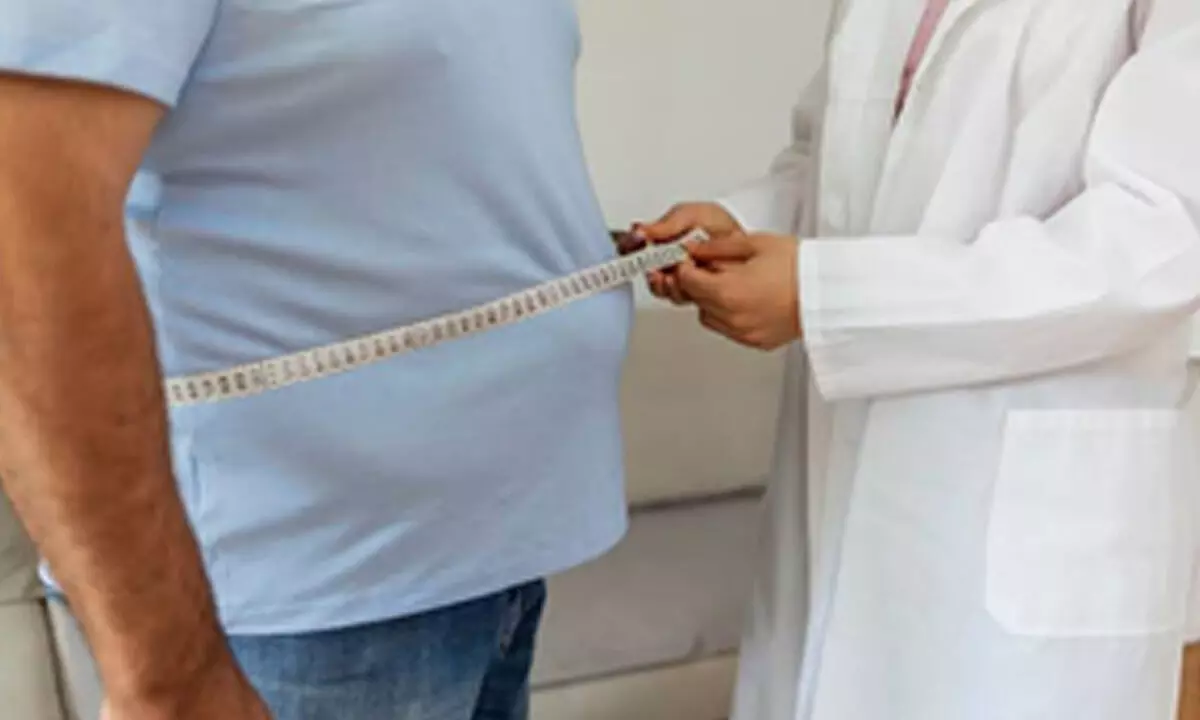Live
- Air India institute to create skilled engineers for aircraft maintenance
- Kejriwal's 7 'revdis' ahead of Delhi polls
- Bad road torment continues for Sec’bad; residents launch drive
- vivo launches Y300 in India
- DCA seizes wide range of stocked illegal medicines
- Counting of votes for Maharashtra and Jharkhand assembly election begins
- FABA announces Lifetime Achievement award to Dr Soumya
- Cantt residents urge intervention into merger issue
- Value buying spurs a quick pullback rally
- Certificates awarded to those who completed vocational training
Just In
Prediabetic? You have 70 pc risk of developing diabetes, say experts

Prediabetes is the most ‘overlooked’ health condition, which if not reversed in time can raise the risk of diabetes by 70 per cent, said experts on Wednesday.
New Delhi: Prediabetes is the most ‘overlooked’ health condition, which if not reversed in time can raise the risk of diabetes by 70 per cent, said experts on Wednesday.
Prediabetes is a serious condition that occurs when blood sugar levels are higher than normal, but not high enough to be considered Type 2 diabetes.
The condition affects more than 130 million individuals in India and over 700 million people worldwide. Like diabetes, it can lead to life-threatening complications like a heart attack or brain stroke.
“Prediabetes puts you at a greater risk of developing diabetes. If both fasting and post-glucose levels are high, the risk is the highest. The level of HbA1c determines the risk for diabetes, with the five-year risk being 50 per cent if the HbA1c is more than 6 per cent, and 25 per cent if it is between 5.7 and 6 per cent,” Dr Ambrish Mithal, Chairman, Endocrinology and Diabetes, Max Healthcare, told IANS. The HbA1c test is used to evaluate a person's level of glucose control.
“The lifetime risk of developing diabetes if you have prediabetes is 70 per cent or greater,” he added.
Prediabetes can be considered a warning sign by your body that your insulin levels are significantly rising or the insulin is not working properly at a cellular level often this is called “Insulin resistance” and is accompanied by abdominal obesity.
Besides heart-related conditions, it can also lead to other complications like high blood pressure, kidney diseases, fatty liver disease, nerve damage, blood vessel damage, and even vision problems in some cases.
Dr Shashank Joshi, Endocrinologist, at Lilavati Hospital Mumbai, calls it “a wake-up call from your body that certain habits are damaging your blood vessels and can lead to complications like heart attack or brain stroke”.
“If left untreated, it can negatively impact your overall well-being. Even if you are not diagnosed with type 2 diabetes, it can still cause serious health issues such as severe damage to the kidneys, heart, nerves, and blood vessels,” he told IANS.
But can it be stopped in its tracks?
“Yes, it is possible to reverse or get remission of the onset of prediabetes by early detection and certain lifestyle adjustments,” said Dr Joshi.
Dr Mithal said, “prediabetes can also be interpreted as ‘prevent diabetes’”.
“One can reverse prediabetes to normal, or at least remain in the prediabetes range for a prolonged period of time without converting to diabetes. Up to 50 per cent cases of Type 2 diabetes can be prevented or delayed if intervention is introduced at the right time. About five to seven per cent weight loss goes a long way in improving glucose levels and reducing associated risks,” he told IANS.
Early detection also plays a key role in reversing the condition.
“Everyone living in India must check glucose especially above 25 if they have a family history of diabetes or their waist circumference is above 90 cm for men and 80 cm for women at least once in three years till age 40 and then every year. Ideally, both fasting and 2 hours post-meal glucose must be checked apart from 3 monthly average glucose namely Glycosylated haemoglobin,” Dr Joshi said.
“If prediabetes is diagnosed, adopt simple lifestyle measures under expert medical supervision. This includes eating less, eating on time, eating right, moving or walking more, sleeping well, and stopping smoking tobacco and alcohol,” the doctor said.

© 2024 Hyderabad Media House Limited/The Hans India. All rights reserved. Powered by hocalwire.com






